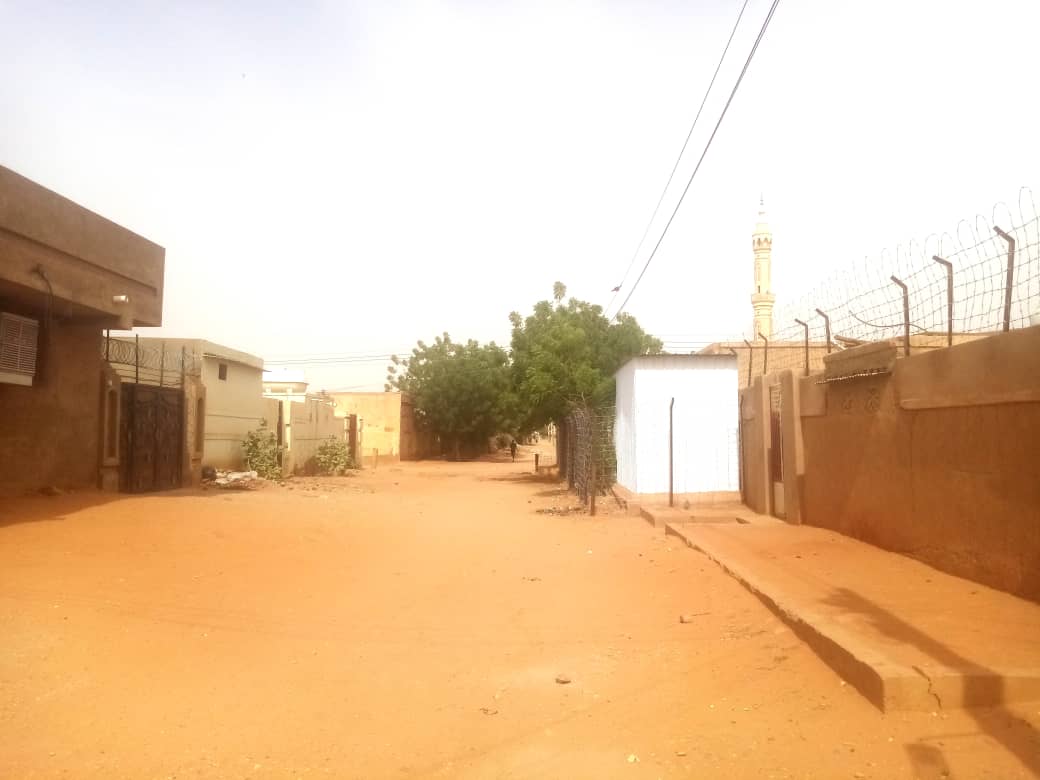
After 90 days...Haj Youssef: The Autumn of War and the Rain of Bullets
Ninety days have passed since the war began, and during that period, the smoke columns rising from the heart of the burning Khartoum never ceased for a moment. And then came the sad autumn, and people waited in despair for pure water to wash away the blood and cleanse the filth of the fighting. But the dark clouds that gathered in those days dispersed and left the sky of Haj Youssef, just like the majority of its inhabitants and residents of the famous popular neighborhood, when they hastily packed their bags and left, forced to seek safety far away from the autumn of war and the rain of bullets.
The ugly face of war did not change the geography of Haj Youssef; it struck at the heart of the Eastern Nile region, directly dismantling its tightly knit social fabric. It disrupted a temporary social model of peaceful coexistence, as a large number of its residents were forced to leave the neighborhood, which is home to several million people, stretching from Nasr neighborhood in the south to the outskirts of Shajara in the north, and from Hilt Koko Bridge in the west to Tawiaat in the far east of the capital, Khartoum.
As the houses emptied of their inhabitants, the streets emptied of pedestrians, and the main roads paralyzed, especially those adjacent to markets and leading to service complexes that used to witness unparalleled activity. But now, it is normal to find a street extending about 1000 meters empty even of stray cats and some abandoned dogs, as the houses belongings are guarded without being able to confront armed thieves and robberies with barking.
Four types of unplanned migrations hurriedly emerged from the belly of Haj Youssef during the war. There was a group that returned to their original homeland out of necessity, while another chose to emigrate to an unfamiliar city and became part of a new society. The third category rushed towards the rural areas surrounding the capital, Khartoum, which were only 40 kilometers away from the combat zones. As for the fortunate fourth group, they crossed borders and left for neighboring countries without considering the hefty financial costs.
Among those affected was Helmi Maati, a sports enthusiast and educated man with a passion for literature and poetry. Circumstances of war and illness forced him to leave Haj Youssef, where he was raised in Square 2 of a large family. He traveled with his family to Wad Madani, a city 280 kilometers south of the capital, Khartoum, in search of medical treatment after kidney dialysis centers at Al-Ban Jadeed Hospital and other facilities had stopped functioning. Unfortunately, Halmi breathed his last there, a stranger in a foreign place. The cursed war did not allow his friends, brothers, and colleagues to carry his coffin with their own hands to his final resting place, nor did the armed conflict permit them to bid farewell to his body with tears and heartfelt prayers.
Helmi was not the only tragedy on that ninetieth day of war. There were many heartbreaking stories, tales of the oppression of families, and the robbery of peace from one-third of the population of the Haj area, who chose to endure the rain of bullets and the sound of artillery explosions while attempting to lead their normal lives. They went to half-operational markets and bakeries, spending the rest of the daylight hours sitting on chairs or under the shade of trees.
Despite the ongoing war and fighting, which has led to shortages of goods and increased prices of essential commodities, the process of social solidarity still persists among the remaining residents, who gather in groups on every street to share food and offer tea and coffee. The cooperation between these individuals extends beyond mealtime; they also collaborate in guarding their neighborhoods at night, relying on whistles and loudspeakers in mosques to fend off attacks from nighttime thieves and armed assailants targeting vehicles by force and vandalizing empty homes, which now pose a greater threat than the thieves themselves.
Awwad Ali and his neighbors Am Al-Sir and Abdo in Square 20 of Haj Youssef are another example of the resilience of social bonds during the war. They have the habit of sitting together in the morning and chatting over tea and coffee in the evening. Although their fourth companion, Mohammed Sayed, recently left for Port Sudan, it did not prevent them from sharing their experiences and coping with the consequences of war through storytelling and fruitful discussions. Awwad always complains whenever he hears the sounds of bombings and warplanes, the same sounds that prompt Am Al-Sir to be on standby to leave Khartoum at any moment and join his family in a safer area in the Northern State.
Young Ahmed Mustafa says, I live on a street with more than twenty families. Fifteen of them have left, and only five remain. The street that was once safe is now even more dangerous due to armed robberies and nocturnal visitors. We can only protect ourselves and our necessities, but we cannot risk protecting someone who left their home filled with luggage and some belongings that attract thieves.
Even the bakery owner was not luckier than the robbed homeowners. He fell victim to a peculiar scam when two armed individuals came with a truck loaded with bags of cheap flour. He bought the flour and paid the full amount, but less than fifteen minutes later, an armed group came and claimed that the flour was stolen. They took back the shipment, leaving the bakery owner empty-handed.
Ninety days have passed, and the fighting continues. Perhaps it will cease one day, but until then, tragedy will continue to unfold daily, as war is the ugly face of life.

